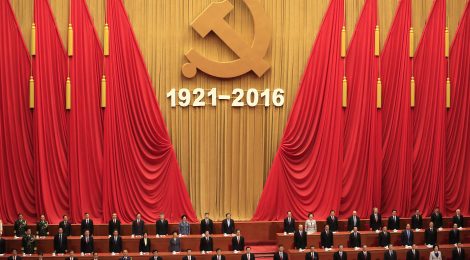
95th Anniversary for the Chinese Communist Party
July 1st marks the 95th anniversary of the founding of the Chinese Communist Party (CCP), officially established in Shanghai in 1921. This recurrence nowadays still keeps an important symbolic value, even if less than in the past. In reality, as confirmed by official historiography, the foundation of the Party occurred in the last days of July-beginning of August. During those days, on the occasion of the 1° National Congress of the CCP, 12 delegates, among whom Mao Zedong, gathered in representation of some 50 members in a building located in the French concession in Shanghai.
The political programme approved that day called for “overturning the capitalist classes” and for the “establishment of a dictatorship of the proletariat,” it also highlighted the importance of the organisational work inside the proletariat and was hostile to any sort of cooperation with other political parties and organisations.
On the eve of the 95th anniversary, President Xi Jinping and other senior leaders joined an audience of more than 3.000 at a concert titled “Eternal Faith,” held at the Great Hall of the People in Beijing. Also present at the event were Premier Li Keqiang and all members of the Standing Committee of the Political Bureau of the CCP Central Committee. Aside from songs profiling the party’s leadership in the past 95 years, a poetry recital was performed. The concert concluded with the famous song, “Without the Communist Party, there would be no New China,” originally composed in 1943 as a response to the Nationalists’ slogan “without the Kuomintang there would be no China,” and made it popular in 1950 by Mao himself who added the word “New” to underline the shift marked by the foundation of the People’s Republic.
 As highlighted during the official ceremony on Friday, the latest statistics show the Chinese Communist Party had a total of 88.758 million members by the end of 2015, which means it has surpassed Germany’s population. Among them, only 22.278 million are women, representing the 25.1 percent of Party members.
As highlighted during the official ceremony on Friday, the latest statistics show the Chinese Communist Party had a total of 88.758 million members by the end of 2015, which means it has surpassed Germany’s population. Among them, only 22.278 million are women, representing the 25.1 percent of Party members.
However, the annual bulletin published on Thursday by the CCP Organisation Department points out that the CCP membership last year grew at its slowest pace since 1989. At the end of the year, the party had added 965,000 members, an increase of 1.1 per cent over 2014. Between 1990 and 2012, membership grew by an average of about 2.2 per cent a year, according to the department’s figures. Since 2012, the year President Xi Jinping came to power becoming CCP General Secretary, growth in new members has steadily declined.
Political analysts say the lower rates reflected some of Xi’s achievements in streamlining and weeding out unwanted elements. “Unlike his predecessors Hu Jintao and, especially, Jiang Zemin who encouraged leading entrepreneurs to join the party […], Xi pledged to control the size of the party and purge ‘unqualified members’,” Shanghai-based political scientist Chen Diaoyin said.
The new aim of Xi has been to optimise the Party in its membership by keeping “good quality” members and also by persuading unqualified members to resign. This “self-purification” campaign, alongside with the nationwide anti-corruption campaign, were introduced in January 2013, just a few months after Xi took over on power, and might have scared off some candidates who once planned to join the Party.
Also, Party candidates need now to meet stricter criteria to get membership then it was before, when Party branches had quota obligations. If compared with before 1989, the Party is now trying to enlist more well-educated candidates. The bulletin said that of the total number of CCP members admitted last year, the 44 per cent have a college degree or above. At least one-third of the members are under 40, while 16 per cent are 30 or younger.




